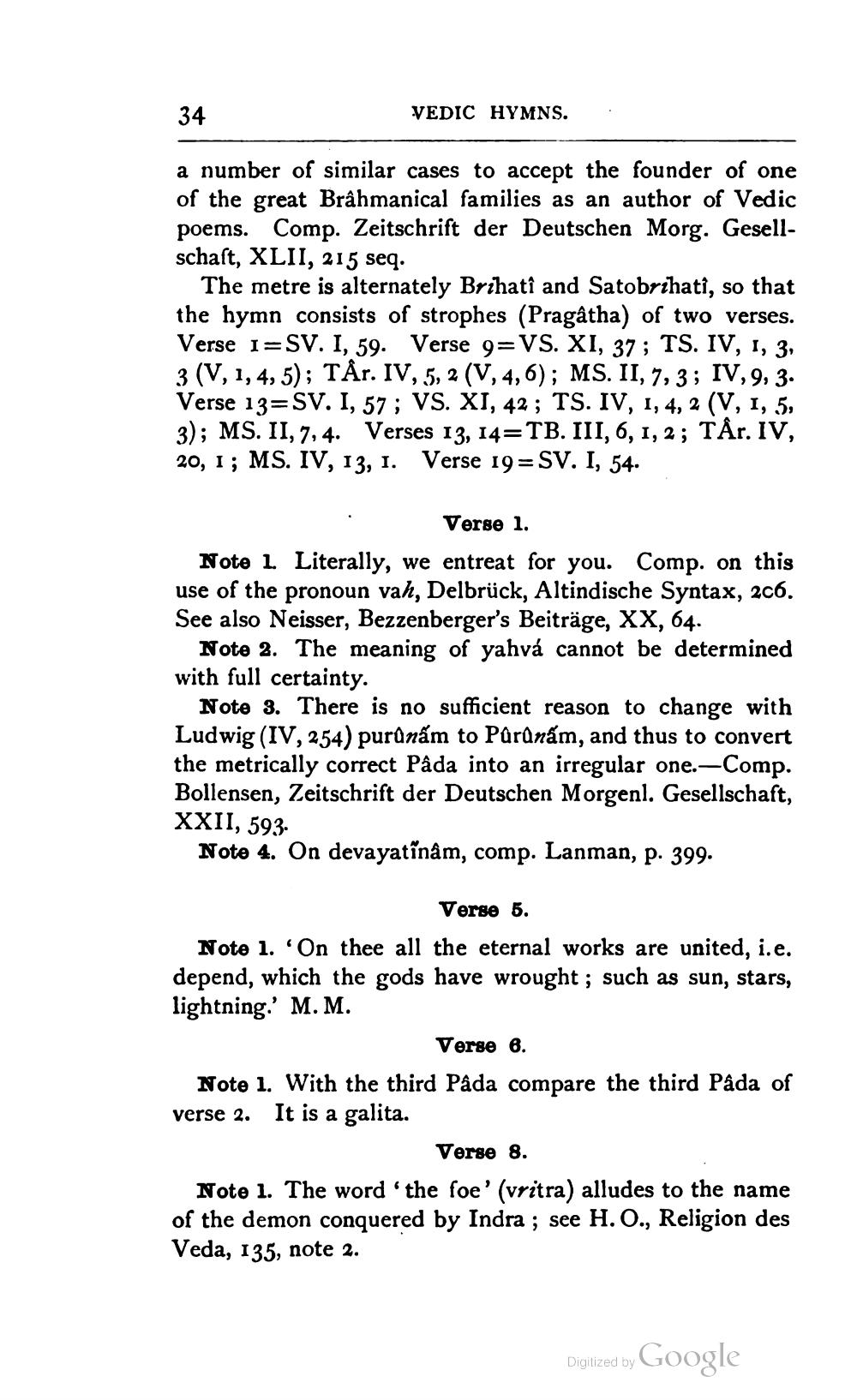________________
VEDIC HYMNS.
a number of similar cases to accept the founder of one of the great Brâhmanical families as an author of Vedic poems. Comp. Zeitschrift der Deutschen Morg. Gesellschaft, XLII, 215 seq.
The metre is alternately Brihatî and Satobrihati, so that the hymn consists of strophes (Pragâtha) of two verses. Verse I=SV. I, 59. Verse 9=VS. XI, 37 ; TS. IV, 1, 3, 3 (V, 1, 4, 5); TÅr. IV, 5, 2 (V, 4,6); MS. II, 7, 3; IV, 9, 3. Verse 13=SV. I, 57 ; VS. XI, 42 ; TS. IV, 1, 4, 2 (V, 1, 5, 3); MS. II, 7, 4. Verses 13, 14=TB. III, 6, 1,2 ; TÅr. IV, 20, 1; MS. IV, 13, 1. Verse 19=SV. I, 54.
Verse 1. Note 1 Literally, we entreat for you. Comp. on this use of the pronoun vah, Delbrück, Altindische Syntax, 2c6. See also Neisser, Bezzenberger's Beiträge, XX, 64.
Note 2. The meaning of yahvá cannot be determined with full certainty.
Note 3. There is no sufficient reason to change with Ludwig (IV, 254) purunám to Puranấm, and thus to convert the metrically correct Pâda into an irregular one.-Comp. Bollensen, Zeitschrift der Deutschen Morgenl. Gesellschaft, XXII, 593.
Note 4. On devayatînâm, comp. Lanman, p. 399.
Verse 5. Note 1. "On thee all the eternal works are united, i.e. depend, which the gods have wrought ; such as sun, stars, lightning.' M.M.
Verse 6. Note 1. With the third Pâda compare the third Pada of verse 2. It is a galita.
Verse 8. Note 1. The word 'the foe' (vritra) alludes to the name of the demon conquered by Indra ; see H.O., Religion des Veda, 135, note 2.
Digitized by Google




